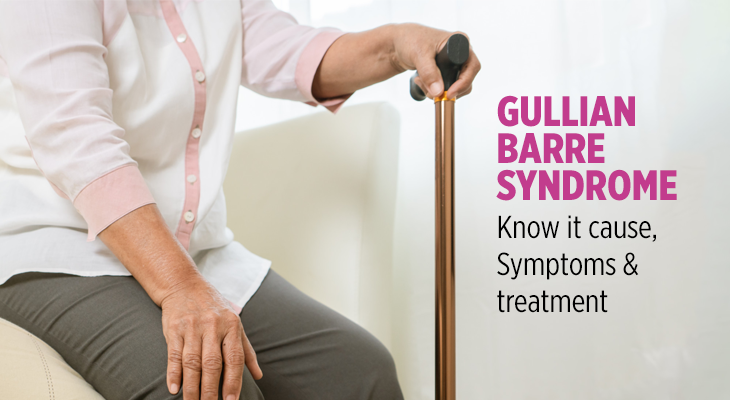GB Syndrome
Table Of Contents
- Introduction
- Understanding Guillain-Barré Syndrome
- Exploring the Signs and Symptoms
- Treatment and Management Strategies
- Navigating Life with Guillain-Barré Syndrome
- Conclusion
Introduction
Guillain-Barré Syndrome (GBS) is a rare but serious autoimmune disorder that affects the peripheral nervous system, leading to muscle weakness, numbness, and in severe cases, paralysis. Though the exact cause of GBS remains unknown, it is often triggered by an immune response to infections or other environmental factors. In this blog post, we’ll unravel the mysteries of Guillain-Barré Syndrome, shedding light on its causes, symptoms, and available treatment options.
Understanding Guillain-Barré Syndrome
Guillain-Barré Syndrome is characterized by the immune system attacking the peripheral nerves, causing inflammation and damage. Some potential triggers and risk factors for GBS include:
- Infections: GBS often occurs following viral or bacterial infections, such as influenza, Epstein-Barr virus (EBV), cytomegalovirus (CMV), or Campylobacter jejuni bacteria.
- Vaccinations: While rare, certain vaccines, particularly the influenza vaccine and the Zika virus vaccine, have been associated with an increased risk of GBS.
- Other factors: GBS can also be triggered by surgery, trauma, or other environmental factors, although these cases are less common.
Exploring the Signs and Symptoms
The symptoms of Guillain-Barré Syndrome can vary in severity and may include:
- Muscle weakness or paralysis, starting in the legs and often spreading to the arms and upper body
- Tingling or numbness in the extremities
- Difficulty walking, climbing stairs, or performing fine motor tasks
- Pain or aching sensations, often described as a deep muscle ache or cramping
- Loss of reflexes or diminished reflex responses
- Difficulty breathing or swallowing in severe cases
- Autonomic dysfunction, such as changes in heart rate, blood pressure, or bowel and bladder function
Treatment and Management Strategies
Treatment for Guillain-Barré Syndrome typically focuses on managing symptoms, providing supportive care, and promoting recovery. Some treatment options may include:
- Intravenous immunoglobulin (IVIG) therapy: IVIG is a treatment that involves infusing antibodies from healthy donors to help modulate the immune response and reduce inflammation in GBS.
- Plasmapheresis (plasma exchange): Plasmapheresis involves removing and replacing blood plasma to filter out harmful antibodies and inflammatory factors contributing to GBS.
- Supportive care: Supportive measures, such as physical therapy, occupational therapy, and respiratory support, can help manage symptoms, prevent complications, and promote recovery.
- Pain management: Medications, such as analgesics or neuropathic pain medications, may be prescribed to alleviate discomfort and improve quality of life during the acute phase of GBS.
- Monitoring and rehabilitation: Close monitoring, ongoing assessments, and rehabilitation services can help individuals with GBS regain strength, mobility, and function as they recover from the condition.
Navigating Life with Guillain-Barré Syndrome
Living with Guillain-Barré Syndrome can present unique challenges, but with the right support and resources, individuals affected by the condition can achieve meaningful recovery and quality of life. Here are some ways to navigate life with GBS:
- Seek medical care promptly: If you experience symptoms suggestive of GBS, such as muscle weakness or numbness, seek medical attention promptly for evaluation and diagnosis.
- Follow treatment recommendations: Work closely with healthcare professionals to develop a personalized treatment plan and follow their recommendations for managing symptoms and promoting recovery.
- Stay informed and connected: Educate yourself about GBS, stay updated on the latest research and treatment advances, and connect with support groups or organizations for individuals with GBS and their families.
- Focus on self-care: Prioritize self-care activities, such as getting adequate rest, eating a balanced diet, managing stress, and staying physically active within your capabilities.
Conclusion
Guillain-Barré Syndrome is a complex and potentially life-threatening condition that requires prompt recognition, diagnosis, and treatment. By understanding the causes, symptoms, and available treatment options for GBS, individuals affected by the condition can receive timely care and support to maximize their chances of recovery and quality of life.
“At Arunalaya Healthcare, we pride ourselves on being the best physiotherapy center in Delhi. Our dedicated team of experts offers top-notch physiotherapy treatment tailored to your needs. Experience the difference with the leading physiotherapy clinic in Delhi area. Our commitment to excellence ensures that you receive the best physiotherapy care possible. Trust Arunalaya Healthcare for the best physiotherapy treatment in Delhi. Our advanced physiotherapy solutions set us apart as the premier choice for your rehabilitation needs. When it comes to physiotherapy, our center stands out as the best in Delhi. Choose Arunalaya Healthcare for comprehensive physiotherapy solutions that deliver results. Visit Arunalaya Healthcare today and discover why we are the best physiotherapy center in Delhi.”
GBS recovery| physiotherapy for GBS | physical therapy for GBS recovery| autoimmune disorder rehabilitation | Physiotherapist Near Me | Physiotherapy Near Me | Best Physiotherapist in Delhi | Best Physiotherapist in India | Physiotherapy Center in Rajendra Place | Knock knee Clinic Near Me | Back Pain Physiotherapy Near Me | Sports Physiotherapist in Delhi | Stroke Physiotherapy | Paralysis | Cerebral Palsy

